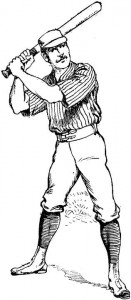
Surely he must have had many questions: What is a beanball? What is a brushback pitch? Apparently, it’s a kind of hardball, but what is its main feature? Can the word be replaced with the term chin music, or are they not synonyms? Apparently, this is something that could result in the peculiar practice known as charging the mound, and if matters escalate, it could even lead to a bench-clearing brawl (also known as basebrawl or rhubarb).
As with other highly specialized practices, baseball is expressed in its own terms, and its jargon can turn impenetrable to the uninitiated. I wonder how these expressions tend to be translated into Spanish, a language which, thanks to the sporting spirit of some Latin American countries such as Venezuela, Cuba, the Dominican Republic and Mexico, is not entirely at odds with the sport of the jonrón.
To read the original Spanish post go to https://www.trustedtranslations.com/de-homers-y-fastballs-2012-07-23.html
